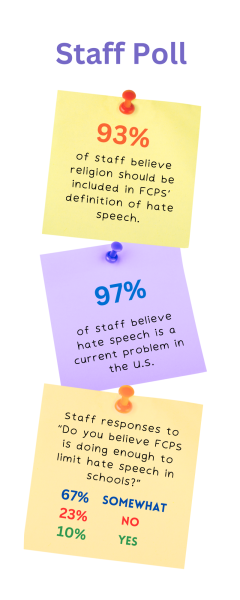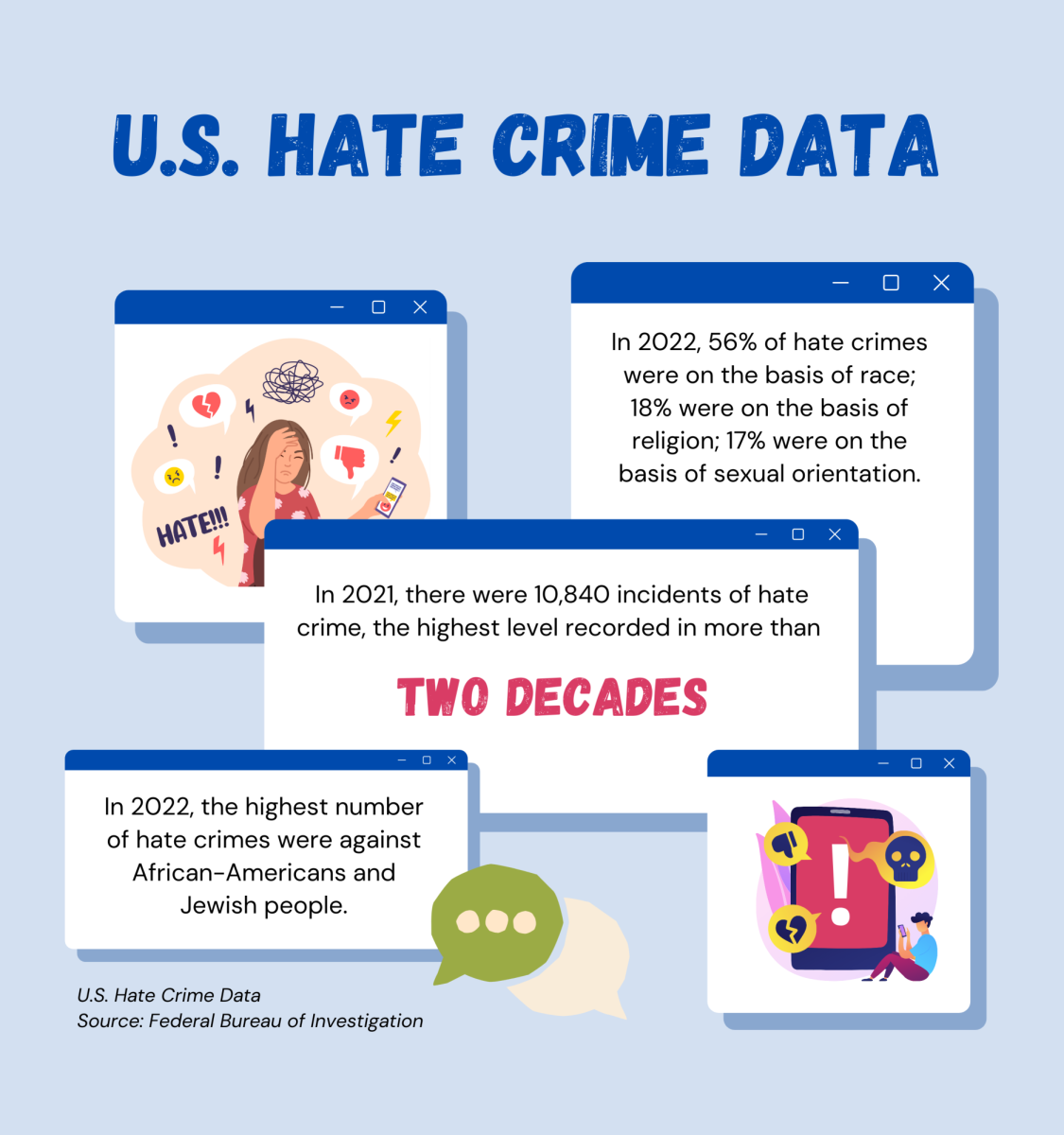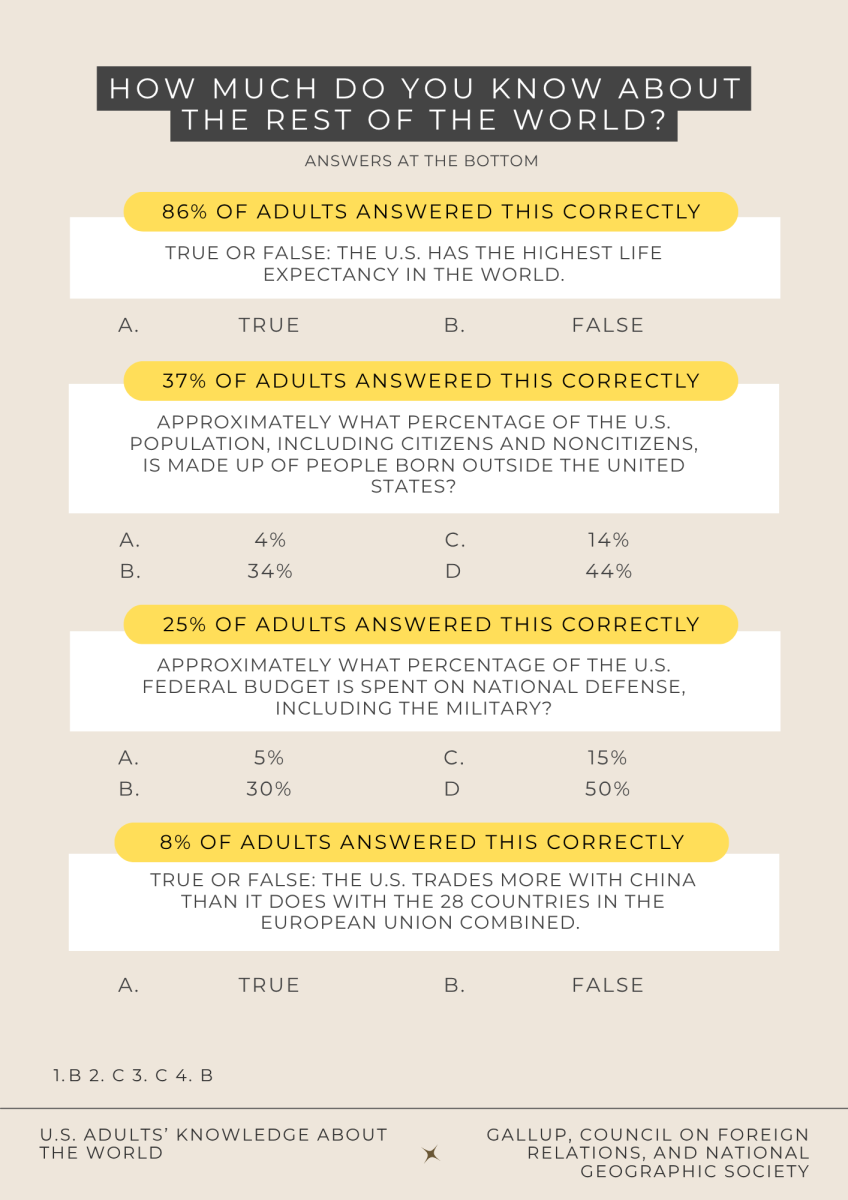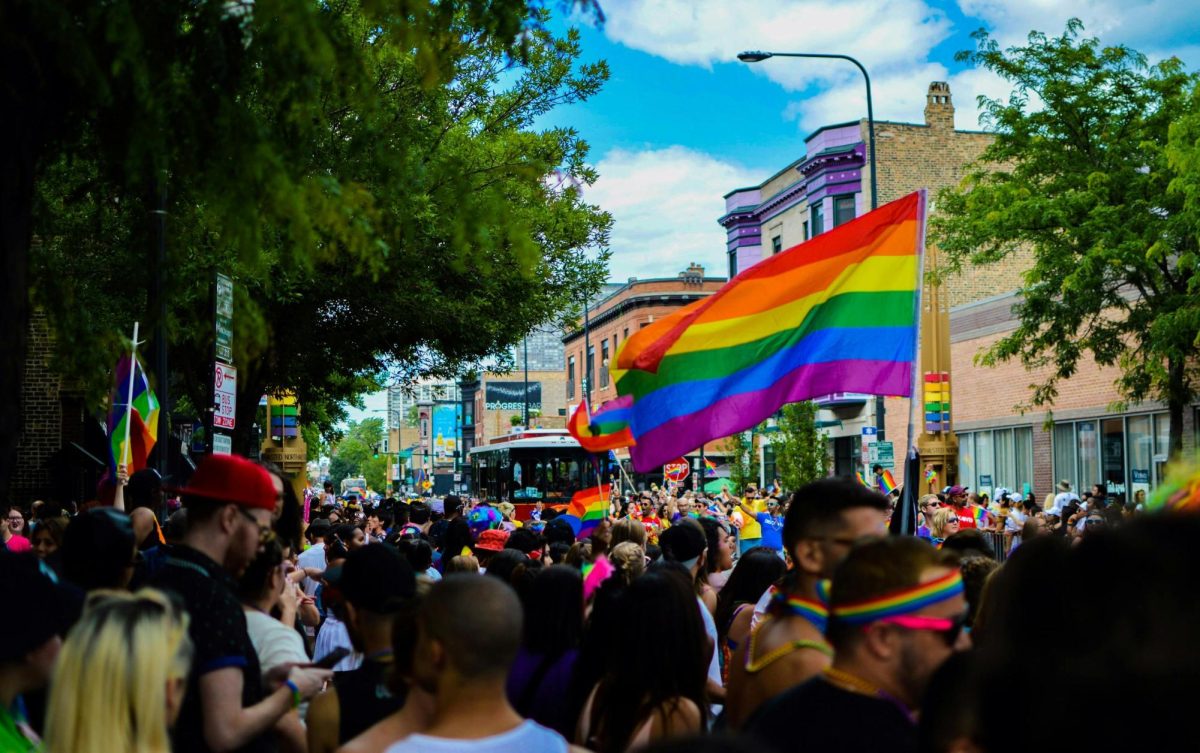Lao Tzu, the legendary Chinese philosopher once said, “Watch your thoughts, they become your words; watch your words, they become your actions; watch your actions, they become your habits; watch your habits, they become your character; watch your character, it becomes your destiny.” Hate speech is on the rise around the world according to the United Nations, and it is concerning because, according to UN Secretary-General Antonio Guterres, it is an “alarm bell” that “precedes and promotes violence.”
Since Oct. 7, the date of the Hamas attack on Israel, hate speech against Jews and Muslims has skyrocketed. According to the Anti-Defamation League, comparing the week before and after the initial Hamas attack, there was a 919% increase in antisemitic posts on X. On Nov. 9, the Council on American-Islamic Relations (CAIR) said there had been an “unprecedented” increase in complaints of anti-Muslim bias in the previous month.
Hate speech in schools has long been a problem. According to the U.S. Government Accountability Office, approximately one in four of all students aged 12 to 18 reported seeing hate words or symbols in their schools, such as homophobic slurs and references to lynching. Seventy-six percent of LGBTQ students report being harassed verbally because of their identity.

As student journalists, we value the First Amendment’s protection of speech and the press. However, when speech incites discriminatory harassment against a particular group, it is no longer constitutionally protected. The FCPS School Board has taken a positive step to address hate speech in its Student Rights And Responsibilities (SR&R) regulations.
“Hate speech” is defined in the SR&R as “any form of expression intended to humiliate or incite hatred against a group or class of persons based upon their actual or perceived race, ethnicity, color, national origin, citizenship/immigration status, weight, gender, gender identity, gender expression, sexual orientation or disability.” Given the recent conflict in the Middle East and the antisemitic graffiti found in the CHS parking lot, it would be advisable for FCPS to include religion in future versions of this regulation.
The 2023-2024 SR&R’s new mandate states that “hate speech levels 1-3 infractions will require students with a first time hate speech infraction to, at minimum, participate in required culturally responsive, learning intervention.” Since education has been identified as key to countering the harmful narratives that underlie much of hate speech, this is an important first step.
Ultimately, though, change must come from individuals themselves: those who are engaged in hate speech, those who support it, and those who do nothing at all. People who allow offensive speech to go unchallenged might dismiss hateful words as non-consequential. Words do, however, matter. As Lao Tzu warned in the sixth century BCE, words can become actions, actions can become character, and ultimately words can change who we are individually and as a society.








